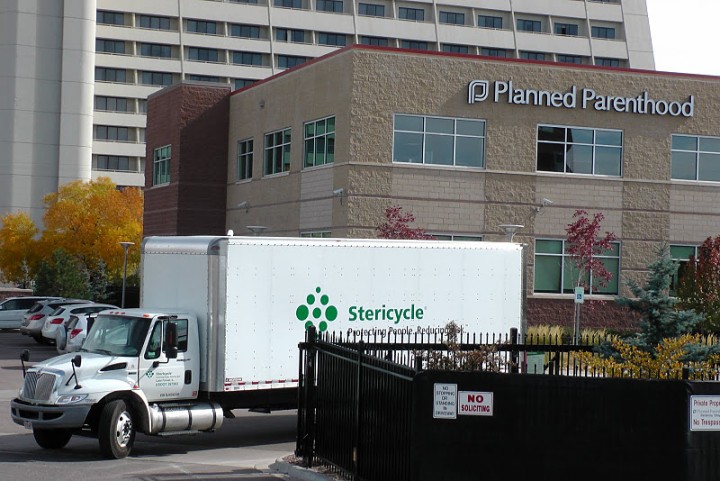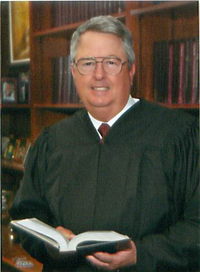 AUSTIN, Texas — A federal judge appointed to the bench by Republican President George H.W. Bush has halted a Texas rule banning the disposal of aborted babies with medical waste, following legal criteria for an emergency injunction that requires judges to rule based on the “likelihood” that the complainant will succeed on the merits of the case.
AUSTIN, Texas — A federal judge appointed to the bench by Republican President George H.W. Bush has halted a Texas rule banning the disposal of aborted babies with medical waste, following legal criteria for an emergency injunction that requires judges to rule based on the “likelihood” that the complainant will succeed on the merits of the case.
U.S. District Court Judge Sam Sparks issued the injunction on Thursday during a hearing that was described as “testy.”
According to the Austin Statesman, Sparks became annoyed that the state would not grant his request to voluntarily halt the regulation until he issued a ruling, and issued an temporary restraining order himself.
“This is the first time the state of Texas has ever said it was going to go ahead [with implementing a regulation] when there’s a suit of substance before” a court, he said.
Sparks scheduled two days of oral argument for Jan. 3 and 4, and is expected to rule on a requested preliminary injunction on Jan. 6.
As previously reported, the rule, requested by Gov. Greg Abbott, was set to take effect on Monday after being finalized by the Texas health department.
“Governor Abbott believes human and fetal remains should not be treated like medical waste, and the proposed rule changes affirms the value and dignity of all life,” spokesperson Ciara Matthews said in a statement in July when the proposal was first announced. “For the unborn, the mothers and the hospital and clinic staff, the governor believes it is imperative to establish higher standards that reflect our respect for the sanctity of life.”
Abortion facilities customarily contract with third party medical waste companies to dispose of the aborted babies, which are usually classified as “pathological waste.” The containers of aborted babies, mixed in with boxes of bodily fluids, tissues and other items that are not permitted to be thrown in the trash, are then transported to an incineration plant where they are burned into ash and then dumped into landfills.
However, current Texas law also allows for other types of disposal, including “grinding and discharging to a sanitary sewer system,” “chlorine disinfection/maceration followed by deposition in a sanitary landfill” or other “approved alternate treatment process, provided that the process renders the item as unrecognizable, followed by deposition in a sanitary landfill.”
The new regulation would mandate that abortionists utilize burial or cremation services provided by funeral homes rather than hiring medical waste companies to dispose of the children with other medical trash.

Several abortion facilities filed suit on Monday to stop the rule from going into effect, including Whole Woman’s Health, Brookside Women’s Medical Center, Austin Women’s Health Center, Alamo Women’s Reproductive Services and others. As previously reported, the medical waste company Stericycle was fined $42,000 in 2011 for dumping fetal remains from Whole Woman’s Health with household and commercial trash.
The lawsuit was filed in part by the New York-based Center for Reproductive Rights.
“We are pleased that the court has prevented these outrageous restrictions from going into effect in Texas, where they would have created immediate and dangerous new barriers on women’s access to health care,” said attorney David Brown in a statement following Thursday’s hearing.
But Attorney General Ken Paxton expressed optimism over how the case would pan out in the long run.
“Texas has chosen to dignify the life of the unborn by requiring the humane disposition of fetal tissue. I am confident in the constitutionality of these rules and look forward to the court upholding their validity by Jan. 6,” he said.
Sparks had previously struck down a Texas rule requiring sonograms prior to abortions, but his ruling was overturned by the 5th Circuit Cout of Appeals. The upset judge complained about the appeals court’s actions, stating that their decision could lead to requiring abortionists to show “graphic images of aborted fetuses and heartfelt testimonials about the horrors of abortion …..under the rubric of reasonable regulation of medical practice.”
“The concept that the government may make puppets out of doctors, provided it does not step on their patients’ rights, is not one this court believes is consistent with the Constitution, in the abortion context or otherwise,” he wrote in 2012. “There can be little doubt that [the law] is an attempt by the Texas legislature to discourage women from exercising their constitutional rights by making it more difficult for caring and competent physicians to perform abortions.”
Sparks had been appointed to the bench in 1991 by George H.W. Bush.
Become a Christian News Network Supporter...


